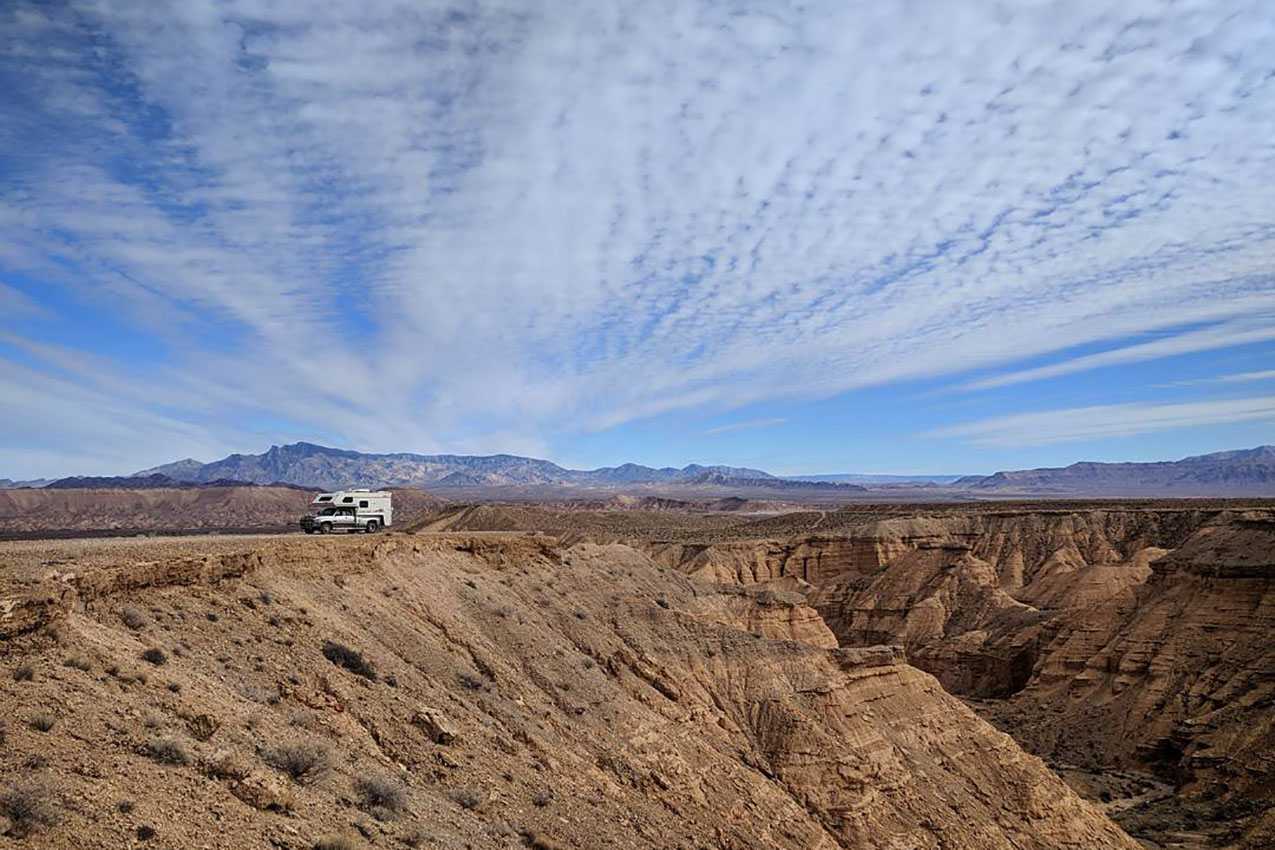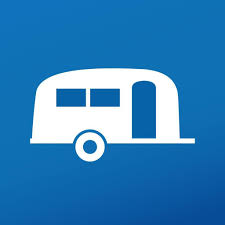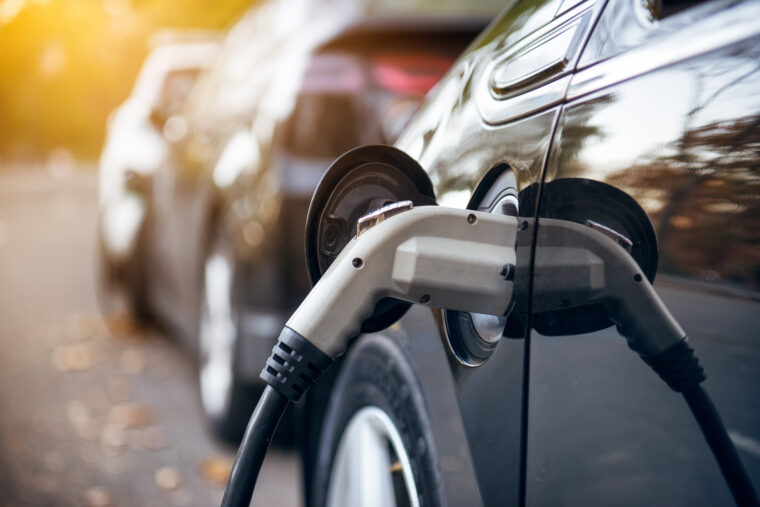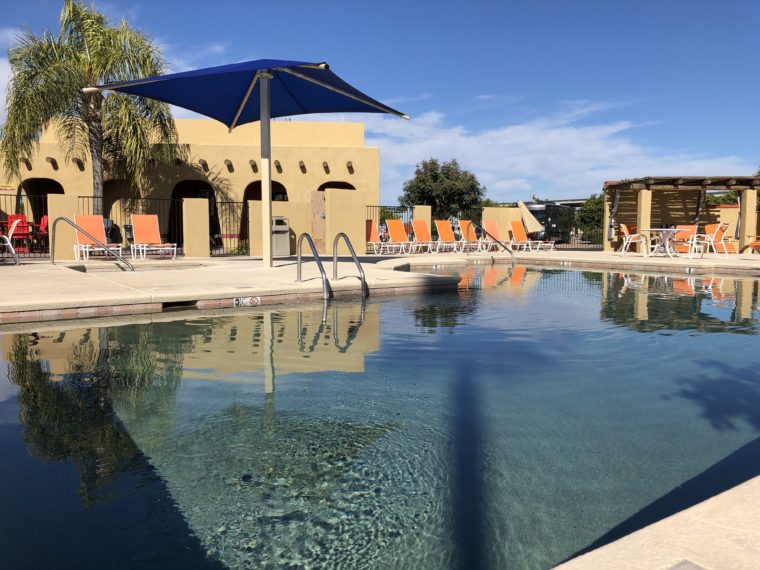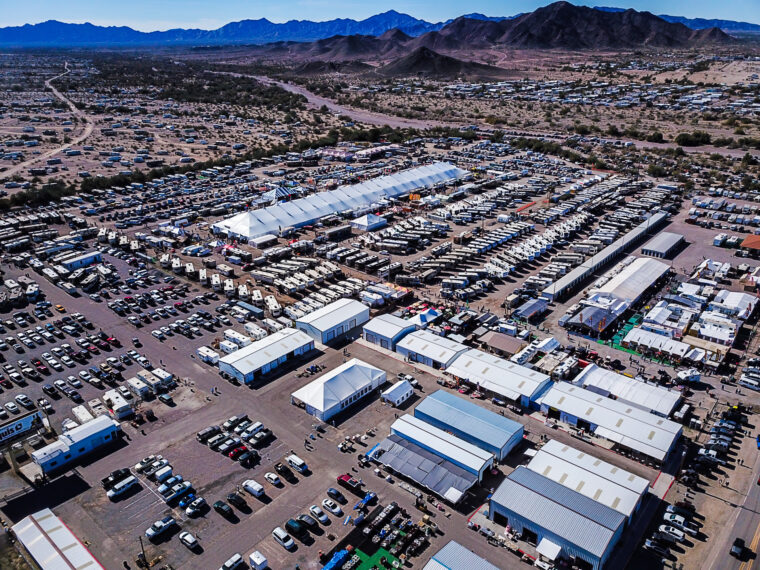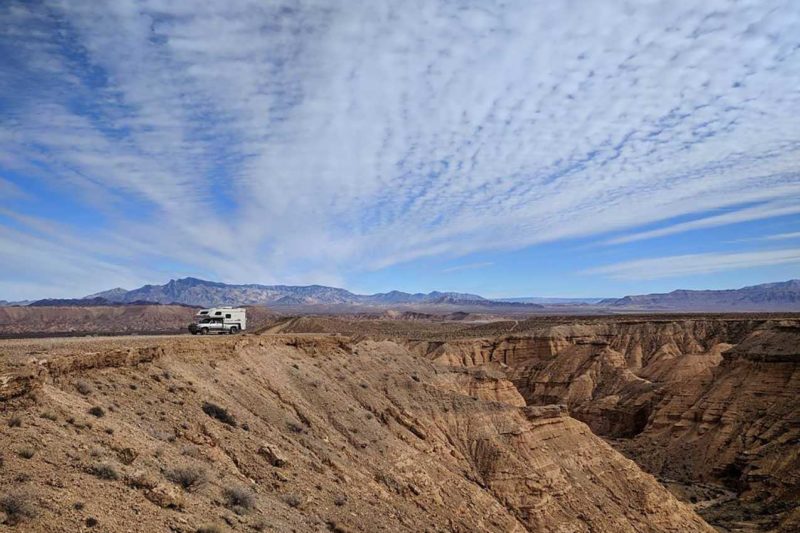
Snowbird Mesa / Poverty Flats – Overton, NV | Photo by: boondockinglife
Boondocking—camping without services on public land—is a great way to go exploring. It offers solitude in nature and lets you truly be off the grid. But what if that solitude is just a wee bit too much for a solo traveler? I used to be terrified of solo backpacking until I did it. And I realized it wasn’t that scary.
But solo boondocking—well that’s a little different. While backpacking, you are less likely to encounter people because it requires effort to reach your backcountry spot. But solo boondocking, accessible by vehicle, means you might run into others who may make you uncomfortable.
The good news is that there are some measures you can take to help keep you safe while solo boondocking.
1. Listen to your gut
Once, on a backpacking trip, I pitched my tent and cozied in for the night near what I thought was a closed-off old road. A man came walking up and made conversation with me. In that conversation, I learned that the road was closed to cars and trucks, but not four-wheelers.
“Are you alone?” he asked me, and I didn’t have the best feeling about it. So after he left, I packed up and hiked the rest of the way back to my car.
Was he a friendly person? Probably, but I trusted my gut, and it told me to pack up and leave. This rule applies deep in the backcountry, and at your favorite boondocking spot, too.
2. Let someone know your location
When solo boondocking, it is always smart to let loved ones know your location. You should also let them know when they can expect to hear from you again. This way if something does happen, someone at home knows where to send authorities.
And because they expect to hear from you in a certain time frame, they can call for help sooner. A man and his wife I once knew went for a day hike at Big Bend Ranch State Park. They got off the trail by accident and ended up getting lost. No one knew to look for them until they didn’t return from their vacation days later. Had they told a loved one when to expect them back, someone would have known something was wrong and could have alerted the authorities.
This is where I tend to be safer while traveling solo. When I’m with someone else, I get complacent and feel secure because a person is with me. But when I’m alone, I let loved ones know every move I make.
If you are roaming where there is no cell service, devices like a Garmin InReach are a great way to communicate with others.
3. Be mindful of what you show outside
When hanging out outside your camper or car, be mindful of what you bring in view of others. Things like laptops and cameras are high-value items, and having them in sight of could-be thieves shows them what they can get if they target you.
4. Keep your windows covered
When you are at home and get weirded out, you draw the shades shut. Keeping the shades drawn in your camper or van, or using window coverings if you are boondocking in a car, keeps wandering eyes from watching you.
With your windows covered, people cannot tell that you are alone. They also cannot look inside to see what type of valuables you have.
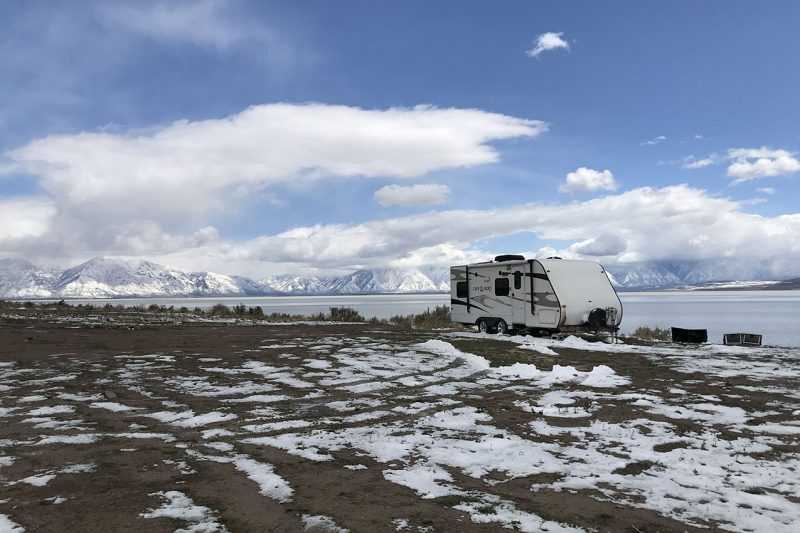
Miners Canyon Dispersed Camping – Saratoga Springs, UT | Photo by: Rv Chickadee
5. Read the reviews from others who have stayed there
Campendium is not only a great resource for finding places to boondock, but also for gathering information on the campsites. You can read what others have experienced in their reviews. Once I was researching where to boondock and I found a casino parking lot on Campendium.
I was leery of sleeping in a casino parking lot, but my fears were quelled by the reviews, which said that the location had friendly staff and it was a great place. No one said it felt sketchy.
6. Talk to locals
Talking to locals is also a great way to judge a campsite. They can be camp hosts at the place you are leaving or gas station attendants. Either way, locals are great resources. You can ask generic questions without giving away your plans.
Once I was trying to decide between two locations. I happened to have a Facebook friend who lived in the area. I simply asked him which one he thought was best and if he thought it was a safe area, before finalizing my plans.
7. Make friends with your neighbors
Visiting with others camping around you is a great way to put your mind at ease. You get to know them and can get a gut feeling about them. If they give you the creeps, you can move on.
Also, if you’ve connected with them, your neighbors may be more likely to help you in the event that something bad does happen.
8. Set up so that it’s easy to leave quickly
The first time I ever slept in a car wasn’t planned. A wreck on the interstate put my best friend and me at our destination past midnight. As we neared the park entrance we saw a big black bear. We were excited until we got to the entrance to find it was gated and locked for the night.
It was raining and we were exhausted, so we decided to just sleep in the car. Being a novice adventurer I was concerned about sleeping in a car with food and knowing bear was around. I told my best friend to keep the keys in the ignition switch in case we woke up to a bear trying to break into the car.
The next morning the ranger laughed at us and said bears in that area weren’t known to bother people, especially in locked cars. But the lesson stays true for anything that gives you an uncomfortable vibe.
When I solo boondock I do so in my Honda HRV. I keep my driver’s side clear and free of any clutter so that I can make a quick exit if I need to. If you have a camper that requires you to unhook and level it, you can do just the minimum to help you load up quicker.
9. Carry mace or bear spray
If you are in grizzly country, chances are that you have bear spray, which is essentially high powered mace. Keep bear spray or mace in a safe but easy to access location. If something bad were to happen, using it may help give you a window of time or space in which to get away.
10. Don’t post in real-time on social media
Posting real-time on social media not only lets everyone know where you are but also may reveal that you’re solo camping. Many full-time campers wait until they leave an area to post about their experience. The pictures are just as beautiful a few days in the future as they are today.
Solo boondocking can seem overwhelming and scary for some, but it doesn’t have to be. Trust your gut and be careful with your actions, but don’t forget to enjoy the experience. See you out there!
